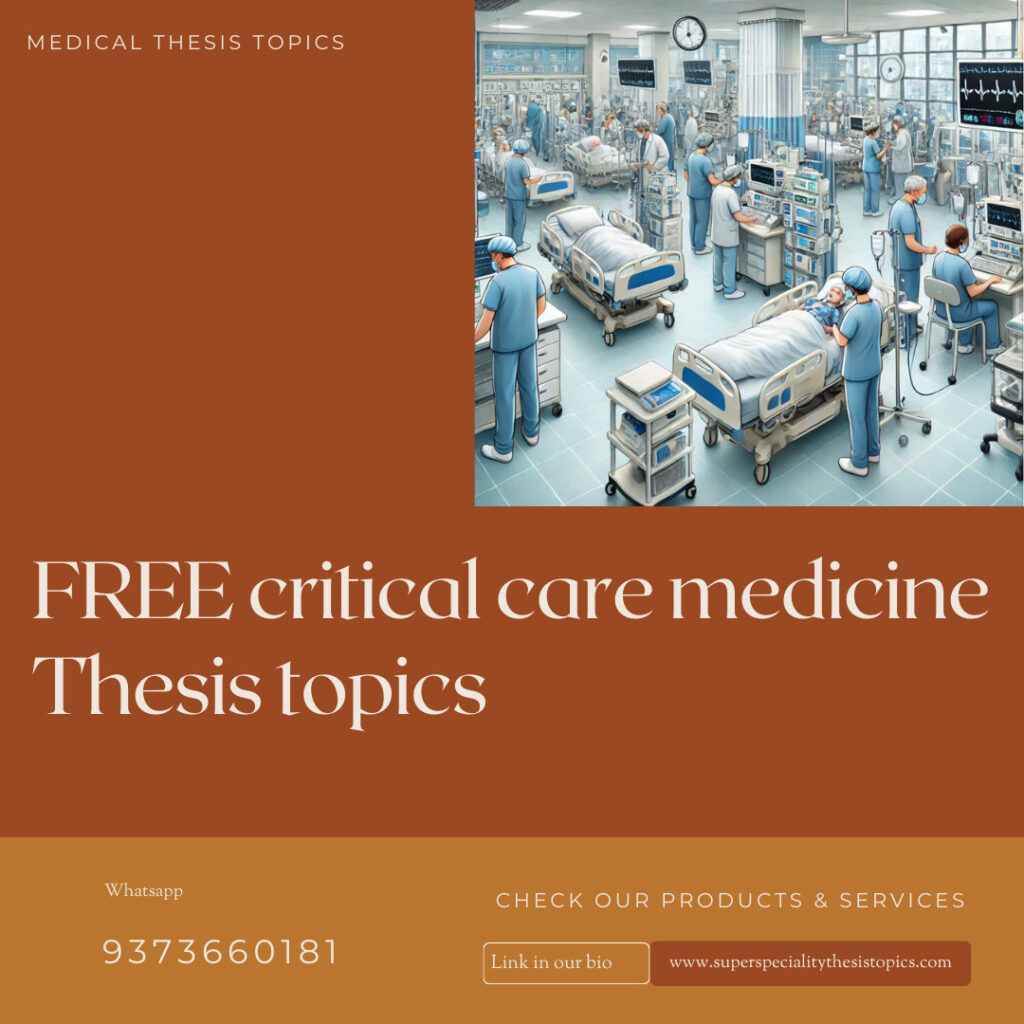Ø An extensive collection of over 100,000 thesis topics is offered on the website, with approximately 10,000 topics per specialty, including a dedicated section for Critical Care Medicine Thesis Topics.
Ø Numerous medical journals have been meticulously reviewed to compile a list of recent Critical Care Medicine Thesis Topics, ensuring resident doctors have access to the latest trends and developments within the field.
Ø Through personalized whatsapp guidance, support is provided to resident doctors throughout the thesis process across all broad specialties and super-specialties including assistance to choose good Critical Care Medicine Thesis Topics.
Ø Thesis protocol and synopsis: assistance is given in developing a well-structured protocol and synopsis specifically tailored for Critical Care Medicine Thesis Topics .
Ø Sample size determination: for studies on Critical Care Medicine Thesis Topics guidance is offered to determine the correct sample size using complex formulas and pilot studies, ensuring methodological precision.
Ø Review of literature: comprehensive support is available for conducting a thorough literature review, establishing a strong foundation for Critical Care Medicine Thesis Topics.
Ø Statistical methods: advice is provided on selecting and applying the most appropriate statistical methods to meet the objectives of selected Critical Care Medicine Thesis Topics.

© 2024 SS Topics